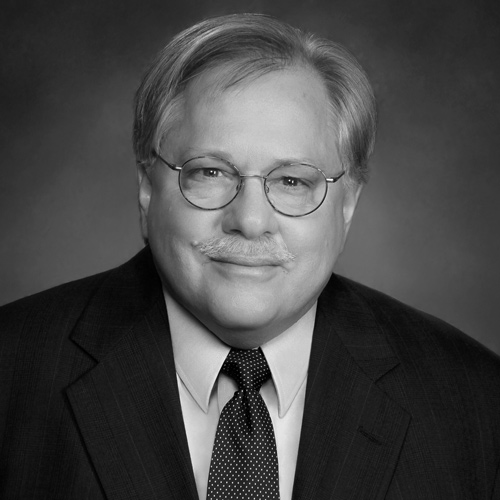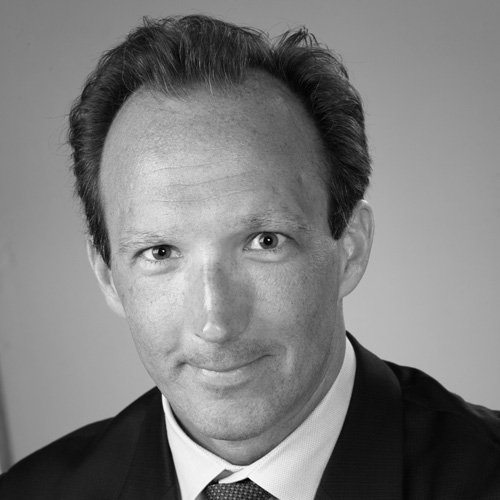Modern Counsel: What has been the biggest difference between your former role as executive vice president of legal affairs and your much broader responsibilities as COO?
Kevin Warren: The most obvious change is the wide-reaching implications of every decision we make. As lawyers we tend to focus on how minute details might affect a specific client, but now each choice goes through a prism that reflects on the entire organization. So I have to ask, “What impact is this going to have financially, legally, operationally, on our brand and with the fans?” And even though I do not manage the football operations department, I also have to consider the impact of business decisions there, too.
MC: With all of that in mind, have you changed how you approach your job or how you prioritize what you do?
KW: I have always believed that communicating as clearly as possible is important in everything we do. That has become an even stronger priority because of the range of responsibilities I have now. Transparency is a big piece of it because I want everyone to understand why decisions are made. Even if they do not agree, I want them to feel that the choices are authentic and have been made based on sound business reasoning. I am a very judicious and methodical person, so I measure 10 times and cut once—and along the way I try to gather wisdom from a few key, trusted advisors, and I pray a lot for wisdom and guidance. I also keep a 20-point checklist in my head at all times to make sure I am considering a single issue from every angle—including how it will impact the broader organization.
MC: In addition to the fundamental details, how do you manage so much feedback from different sources at the same time?
KW: I have tried to structure our processes so that getting input from various individuals is a normal part of day-to-day business. For example, prior to my becoming COO, we didn’t have organization-wide staff meetings. Now we have them on a monthly basis. It makes everyone aware of what we are working on and our vision for the future. It also creates opportunities for the staff to feel more engaged, involved, and valued in our ongoing operations.
In addition, I have also pledged to meet privately with every individual in the organization within the first year. That involves many meetings because we have about 160 employees and the meetings last anywhere from 30 minutes to three hours. But they have been fantastic opportunities to find out what is important to our staff. The two questions I ask each person are: “What can we provide to help you do your job at the highest level?” and “If your family bought the franchise tomorrow, what would you improve to make this a world-class place to work?”
MC: Did your previous positions prepare you for handling your new responsibilities?
KW: I have worked with some incredibly talented people in my career, but I worked with two particularly wonderful mentors. One was Mike Slive, the former commissioner of the Southeastern Conference. Among the many lessons he taught me was how to deal with people and to recognize how valuable they are. We tend to think a lot about business and networking and the alliances we build to help reach our goals, but they are essentially about the people that are involved, about the way we treat them and acknowledging their importance in what we are trying to achieve. Completing our new stadium, for example, is largely dependent on our relationships and treating them respectfully. That includes our fans. We do not manufacture a physical product, so I am constantly aware of the experience we provide our fans and their perceptions. We have to earn their trust and devotion through everything we do every day. Some people would argue that I am talking about the Vikings brand, but to me it is all the same thing. It is about never taking the people—our fans or our staff—for granted.
A Partnership With Purpose
The Vikings had several key criteria as they searched for appropriate stadium naming rights candidates. They wanted an iconic Minnesota brand and a company that understood the importance of connecting with fans and the community. They fulfilled both requirements in their 20-year deal with U.S. Bank.
The new partnership is exemplified by the Places to Play program. Both organizations are funding the $1 million grant-making initiative to support parks, playgrounds, athletic facilities, organizations, and sites that contribute to communities’ quality of life.
“If we could not find the right company with the right fit, we were prepared to open the new stadium without a name because it really has to stand for something,” Warren says. “With U.S. Bank I am proud to have the opportunity to work on a project that is going to be a game-changer for the Twin Cities community and the crown jewel of the NFL.”
MC: Is your legal background an asset in your role as COO?
KW: It has given me a strong basis in the business fundamentals that go into successful operations. And almost every decision has extensive legal implications. I am not able to spend the same kind of time I used to on the minute details of each issue, but I know I can rely on the legal staff to provide everything I need to know.
I still manage the legal department, and we have worked together and known each other for a long time. Every person there has interned with us for at least two summers and has been part of the team for five to seven years. That provides tremendous consistency, which, speaking of mentors, is something former NFL head coach Dick Vermeil stressed when I was with the St. Louis Rams. So the staff knows I am going to ask a lot of questions about everything they bring me, and I’ve taught them—just like Mike Slive and Coach Vermeil taught me—to be prepared to answer 100 percent of the questions that might come up. You don’t make it up if you don’t know the answer, but you have to be prepared—and inevitably, the smallest details turn out to be the most important.
MC: When you were 12 years old, you survived serious injuries after being hit by a car and later went on to play college basketball. How do those events influence your views of working at the highest levels in professional sports?
KW: Sports were very important in my house growing up. My parents and siblings were all athletes, so it is in my DNA. When I was injured, I spent weeks in traction in the hospital and then months at home in a body cast. I was told I would never compete athletically again. I could not stand up when I got out of the cast, and there were days when I thought I was not going to make it. I learned then that you can never take a single day for granted and that hard work can conquer most issues. Five years later I was playing Division I basketball for the University of Pennsylvania. We went to the Suntory Bowl in Japan, and I remember standing at the scorer’s table waiting to go in against Louisville and praising God for how far I had come. That was incredibly special. It taught me to be tenacious, aggressive, work hard, make good decisions, never quit, stay positive, and always look for the
opportunities in every situation.
MC: You mentioned that your father was an athlete, but he was also a career educator. Do see yourself following in his footsteps?
KW: I do. He played professional football in the late 1940s for the Brooklyn Dodgers in the All-America Football conference and went on to be the first African-American president of a major college bowl game when he was on the board of directors for the Fiesta Bowl. So I look at him as a myth-buster and trailblazer. He was a man’s man. I realize that I have a unique chance to help continue his legacy. Just like he did, I can change people’s perceptions of black men, of sports, and of businesspeople in general. But another part of what I want to do is make the Wilf family (the Vikings’ owners) proud. I want them to look back and say that one of the best decisions they ever made was promoting me to COO and giving me other various opportunities along the way.
MC: What are your key goals for yourself and the team?
KW: For the Vikings organization, I want to create the most dynamic and creative business operation in all professional sports. Not just in the NFL, but all sports. I want to develop a best-in-class mentality in everything we do so that employees are excited to work for the Vikings, and their parents and families are proud that they are part of the organization. To accomplish that, we are working on leadership development with experts like Simon Sinek, who wrote Leaders Eat Last, and others so that we can train everyone how to create and deliver a top-notch experience in every aspect across the board. And, of course, I want to do everything I can to help our franchise win multiple Super Bowl trophies.
On a personal level, my parents taught me to leave a place better than it was when I arrived. Consequently, I keep my eyes open not for new challenges, but for new opportunities to accomplish things—like our new stadium—that are executed to the highest possible standards of integrity, quality, and respect for the people involved. That is what I think about every single moment of every single day.

